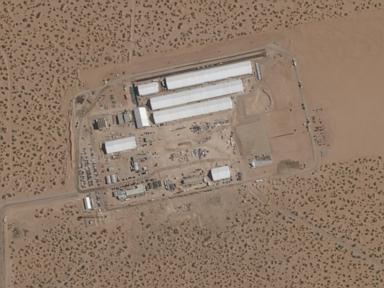A small Virginia company with no track record in detention facilities has been awarded a mammoth $1.2 billion contract to build what is projected to be the nation’s largest immigration detention complex. The camp, planned for the Texas desert, raises a host of questions about government oversight and transparency.
Mystery surrounds $1.2 billion Army contract to build huge detention tent camp in Texas desert

Key Takeaways:
- The project is valued at $1.2 billion.
- It involves building the largest immigration detention complex in the United States.
- The site is set to be located in the Texas desert.
- A small Virginia firm with no prior correctional facility experience secured the contract.
- The deal was awarded during President Donald Trump’s administration.
Background
The federal government, under President Donald Trump’s administration, moved forward with a sizable new initiative last month: a contract to build and operate a massive immigration detention facility. The location for this new site is the remote desert of Texas, signaling a considerable expansion of the government’s detention footprint.
The $1.2 Billion Contract
Worth $1.2 billion, the agreement outranks many similar projects in scope and financial terms. The reigning question is how such a significant contract was decided upon, especially given the stated purpose of creating what is expected to become the nation’s largest immigration detention complex. Though awarding large contracts for federal projects is not unusual, this particular deal has garnered scrutiny and concern.
The Surprising Recipient
At the center of this conversation is a tiny Virginia firm that secured the immense contract. According to the information available, this company has no prior experience running correction or detention facilities. Observers point to the fundamental mismatch between the scale of the $1.2 billion contract and the firm’s track record, prompting many to question the evaluation process used to select the contractor.
Lack of Transparency
Alongside questions about the contractor’s experience comes an air of mystery about how exactly the deal was reached. While large federal contracts typically undergo a rigorous bidding process, details around this award seem sparse. The situation underscores broader concerns over accountability and oversight in federal contract assignments.
Looking Ahead
If completed, this new detention complex in the Texas desert will likely stand as one of the most significant developments in U.S. immigration enforcement. As observers wait for more clarity on how and why the contract was awarded, critics and officials alike will continue to question whether a firm with little or no relevant experience can properly fulfill such a critical role. The future of the project—and whether it meets its stated objectives—remains to be seen.











